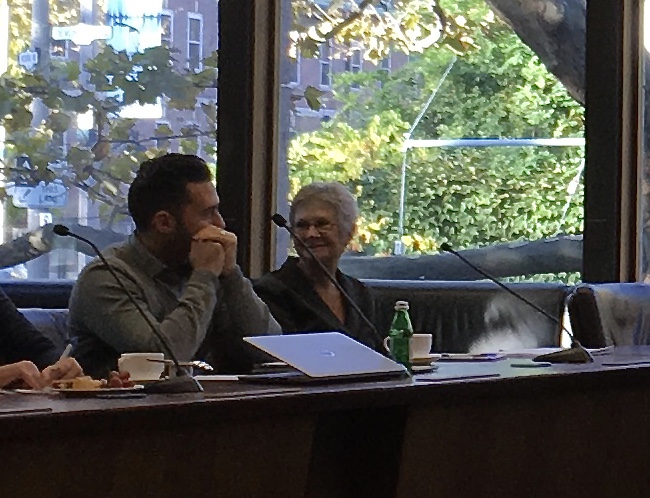
Colette Murphy is the Executive Director of the Atkinson Foundation.
This weekend we learned Donna Wood died a couple of weeks ago in Victoria, British Columbia after a long illness. Donna was a private person about her health, but a fiercely public person when it came to the health of Canadian society. That’s why only a few of us had any idea that the paper on Employment Insurance we published at the end of January would be one of her last.
I first met Donna in 2017, shortly after the Mowat Centre released her report “The Seventy-Five Year Decline – How Government Expropriated Employment Insurance from Canadian Workers and Employers and Why this Matters” and the same year as Atkinson’s 75th anniversary. This work spoke directly to our current decent work agenda and our historic commitment to a national unemployment insurance program governed by those who contribute to it.
John Stapleton introduced us. John (representing the Government of Ontario) and Donna (representing the Government of Alberta) had been among a dedicated group of provincial civil servants in the 80s and 90s who met at federal-provincial policy tables to improve — and often protect — Canada’s social safety net. John assured me Donna was an academic who could be counted on for “practice-informed evidence”.
It was this unique perspective that I came to deeply appreciate over the last two years. Donna was a naturally collaborative policy maker rooted in the realities of people who are unemployed and untethered by bureaucratic convention about the use of tax dollars. A late-blooming academic whose intellect could document challenges in painstaking detail and whose imagination could envision incremental solutions. A principled woman determined to demonstrate to her children and grandchildren how a more equitable society behaves.
Donna was a reliable source of practical ideas to this end. She put no fewer than four in front of me when we first met. But it was the idea of a comprehensive review of Employment Insurance — to renew it for this century — that made the most sense to her and everyone who heard her case. Simply put: a growing number of people can no longer benefit from this program even though they pay into it, and an even bigger number do not have the kind of work that allows them to access it.
Donna was distressed by the decisions taken in the 90s that eventually led to this unacceptable place. And while she could, she did everything within her power to get Canada back on track. It was a honour to work with her and to catch her vision for the country. Her scholarship will continue to serve as our compass and roadmap, but we’ll miss Donna’s steadying influence and generous spirit more than I can say.
